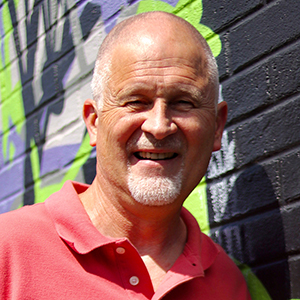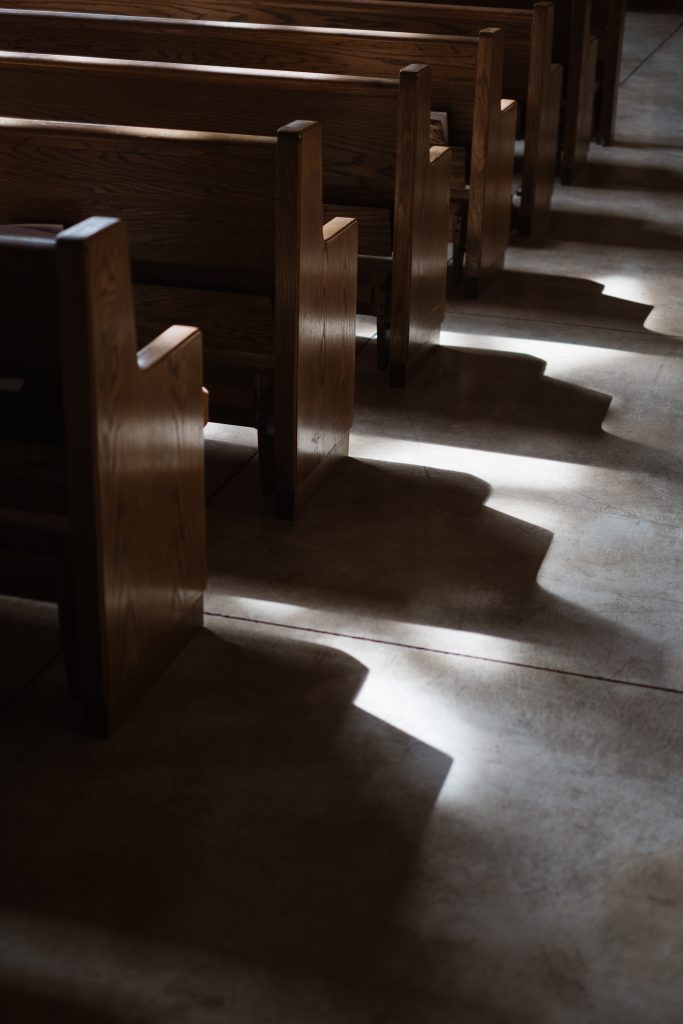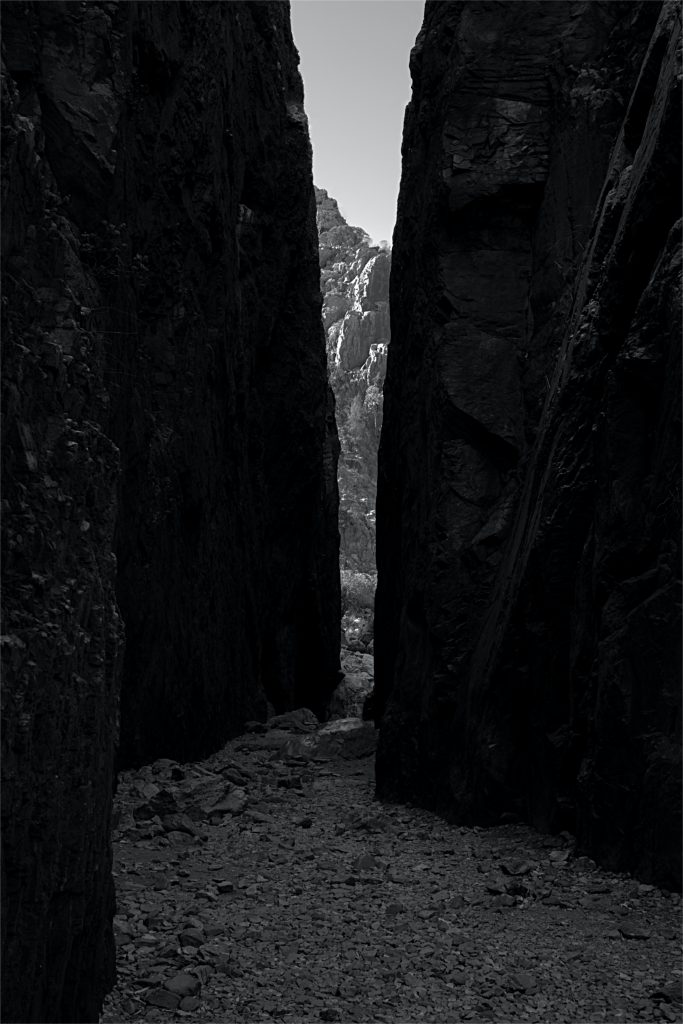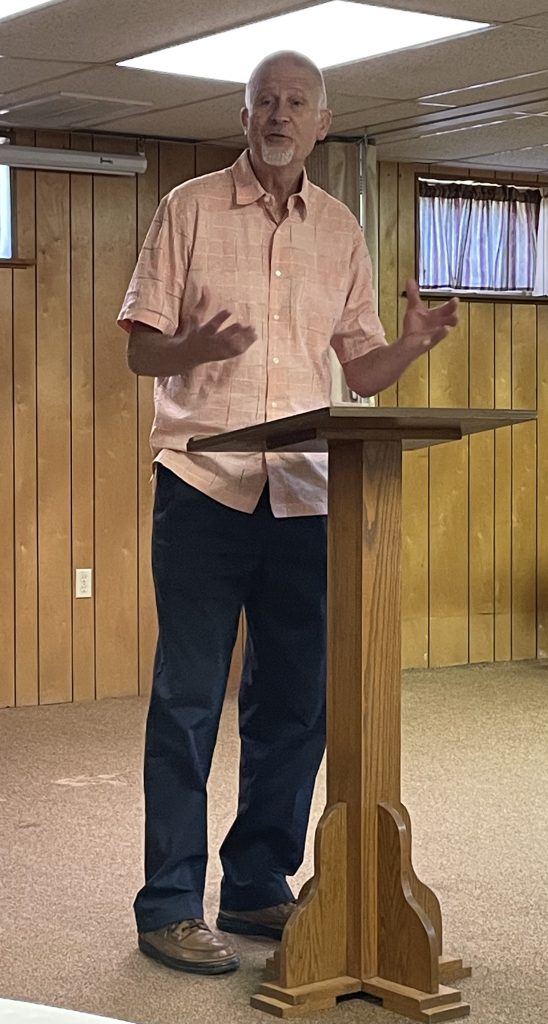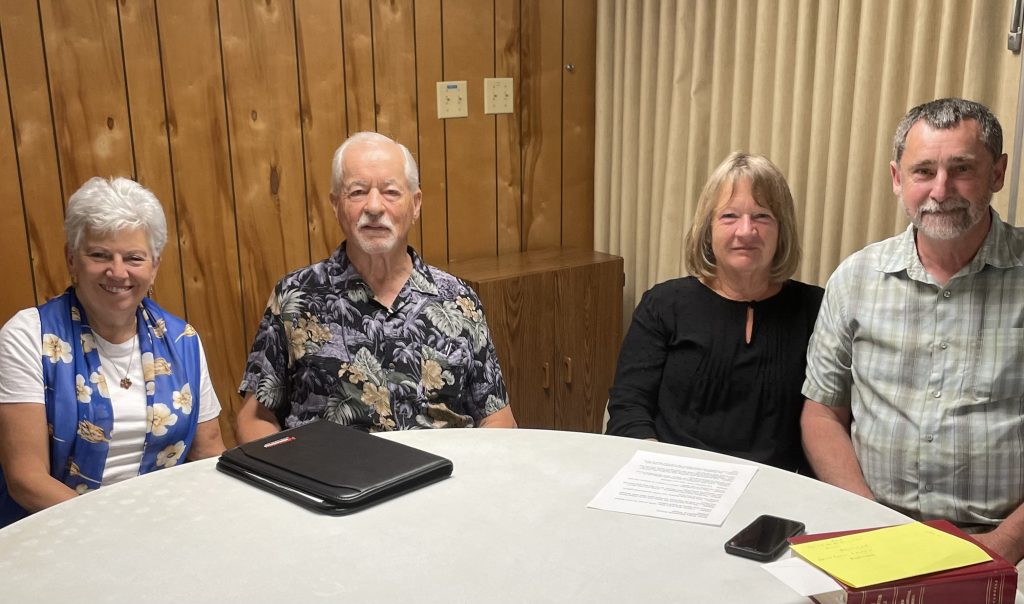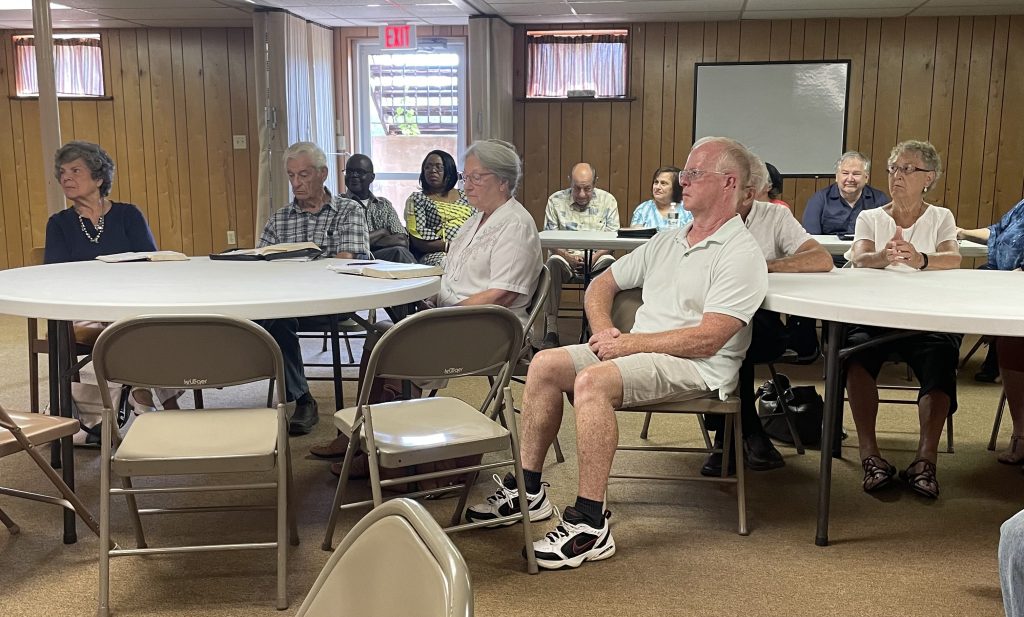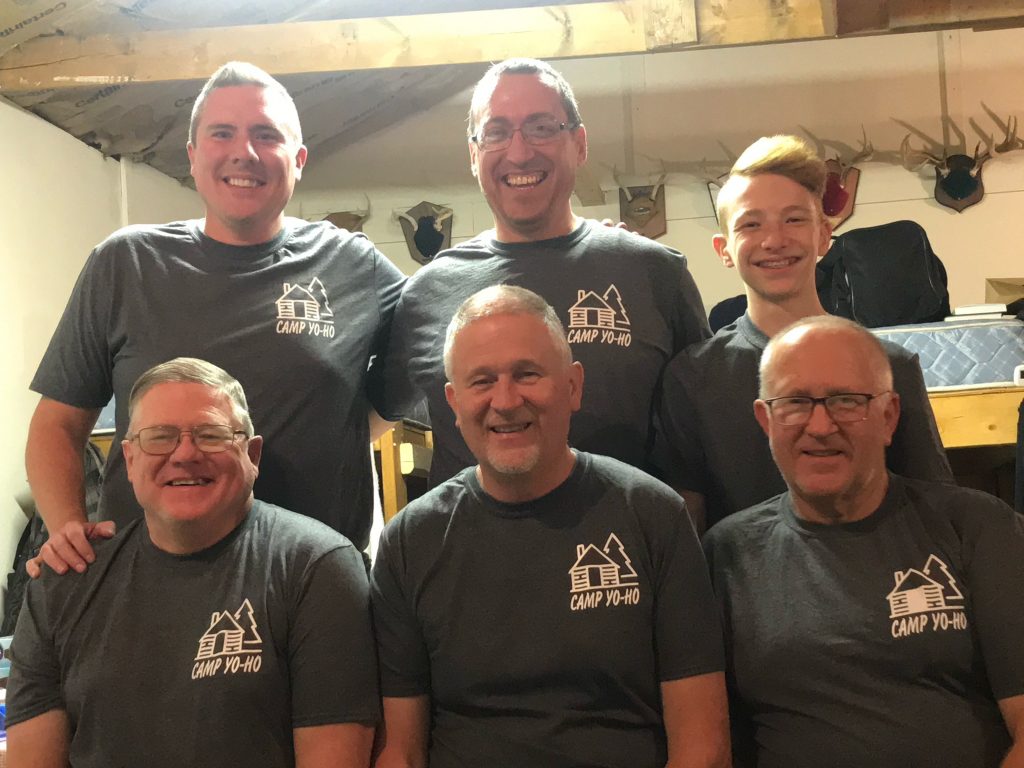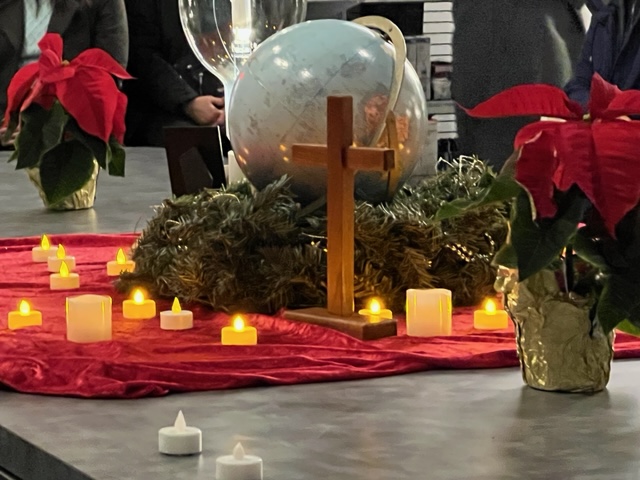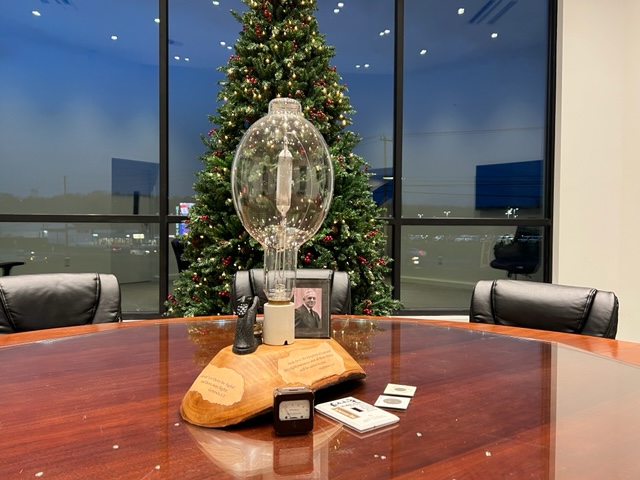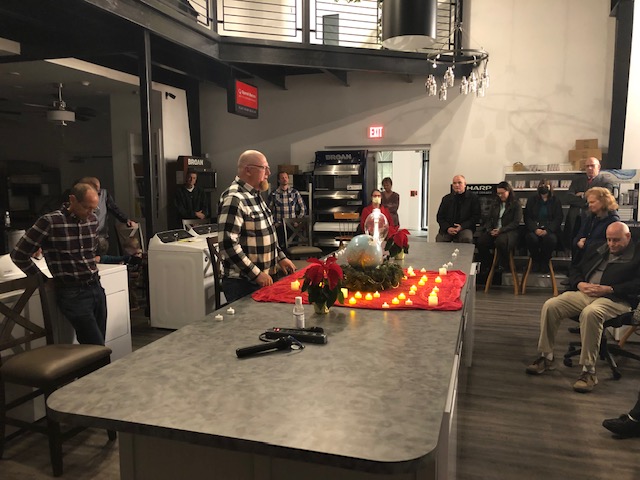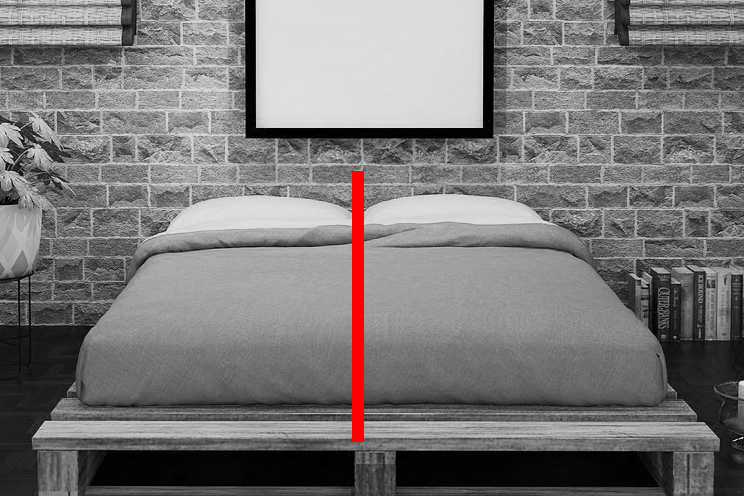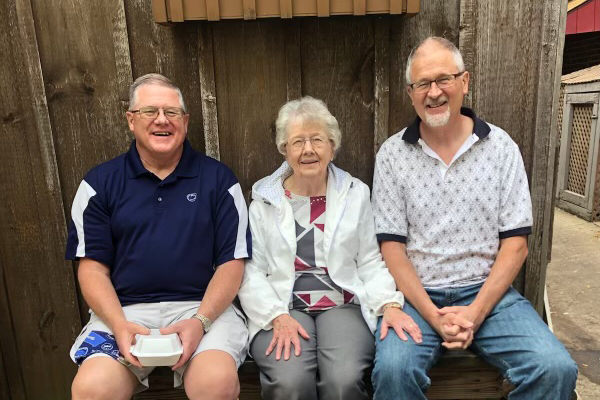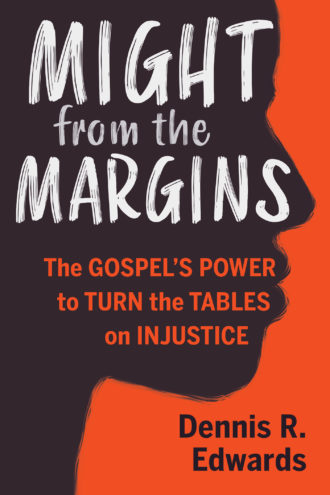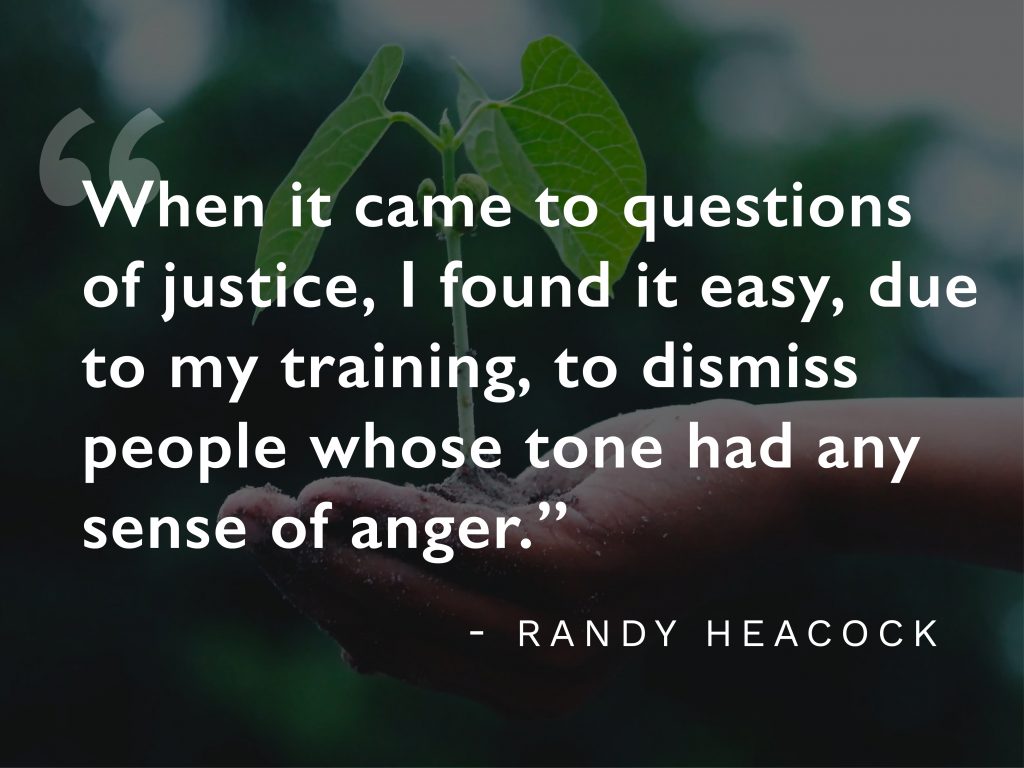by Noel Santiago
On a cloudy and cold afternoon, the warmth of love, laughter, and deep appreciation filled the room as nearly 90 people gathered to celebrate Pastor Randy Heacock’s 23 years of ministry at Doylestown (PA) Mennonite. It was an afternoon marked by the glowing radiance of a life poured out in faithful service.
The celebration began with a delicious pulled pork meal, with all the fixings, shared around tables buzzing with stories, memories, and heartfelt conversations. Friends, family, and congregants near and far gathered to honor a man whose life has embodied the phrase: “Standing firm in the faith: displaying God’s radiance and hope.”
Throughout the event, voices rose in gratitude and joy, sharing moments of Heacock’s ministry that had left lasting marks of support, encouragement, and faithful presence. Whether offering a listening ear, sharing a quiet walk, or playing a pickup round of disc golf, Heacock has always had a unique way of making others feel seen and valued.
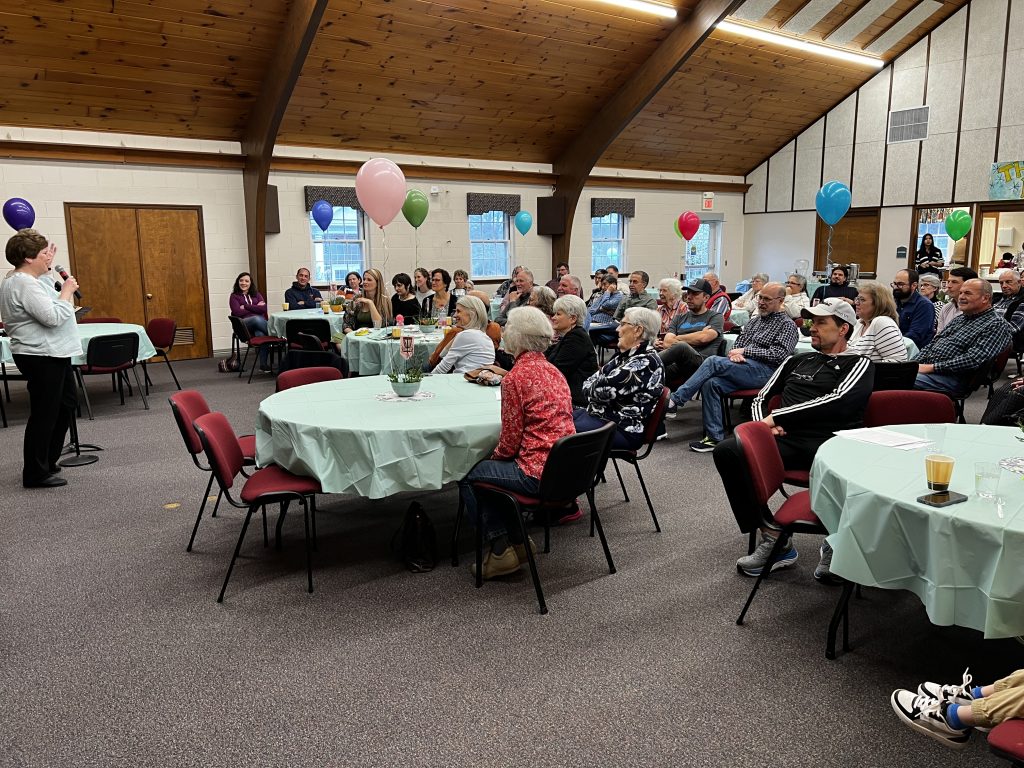
Laughter rang out as a small drama team reenacted one of Heacock’s infamous encounters of being pulled over. Apparently not an uncommon experience and certainly not forgotten, the comedic sketch brought smiles all around.
Nancy, Randy’s partner in ministry and in life, received the “Most Extra” award for the way she goes out of her way to serve others. Her heartfelt tribute to the congregation brought tears to many eyes as she recalled the joy, pain, and faithfulness shared throughout the journey. Her words were a reminder of the community that has both shaped and been shaped by the Heacocks.
Randy’s pastoral ministry has been marked by a deep relationality, whether on basketball courts, disc golf courses, over donuts and M&Ms and, yes, even Spam. Through these simple joys, he has built connections across generations and backgrounds. His passion and presence have been both a comfort and a challenge, always calling people deeper into the life of faith.
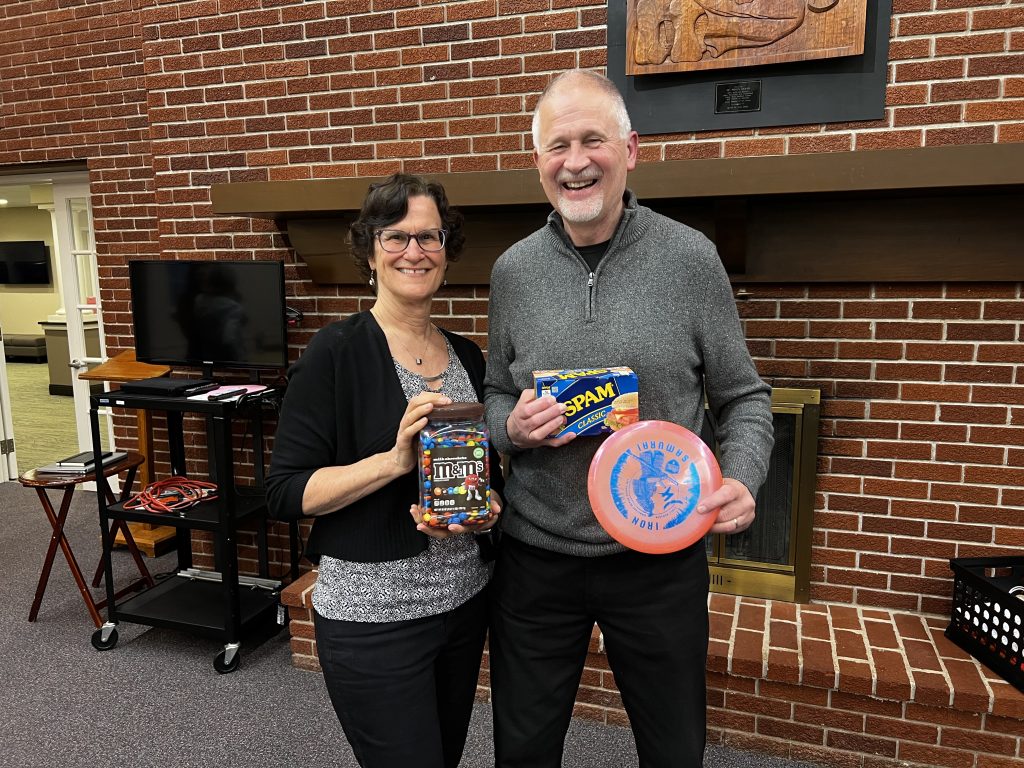
A significant milestone during Heacock’s time at Doylestown was the initiation of a missional journey. This was not a program or event but a shared way of life for the congregation. It became a season of listening for where God was already at work in the world and stepping out in faith to join in.
As the evening drew to a close, tributes from past and present leaders underscored the lasting impact of Heacock’s ministry. Sandy Landes, prayer minister, wrapped up the gathering with powerful words of remembrance, encouragement, and a challenge to continue the risk-taking spirit Heacock has exemplified.
In the end, it wasn’t just a farewell. It was a celebration of faithfulness, friendship, and the many seeds planted through decades of ministry. As Heacock transitions, the echoes of his life and leadership will continue to ripple through the lives he’s touched. His legacy is not just in the sermons preached or the meetings led, but in the countless lives transformed by his humble, radiant witness.
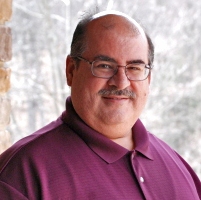
Noel Santiago
Noel Santiago is the Leadership Minister for Missional Transformation for Mosaic Conference.
Mosaic values two-way communication and encourages our constituents to respond with feedback, questions, or encouragement. To contact Noel Santiago, please email nsantiago@mosaicmennonites.org.


